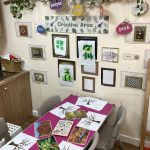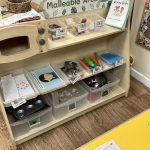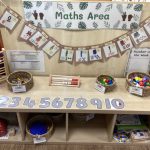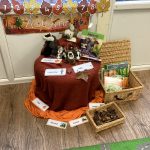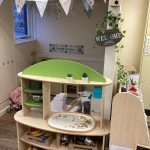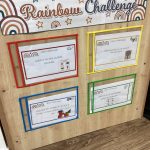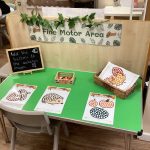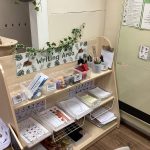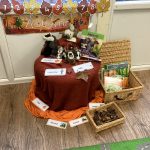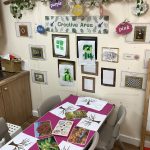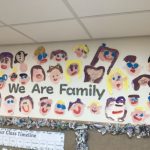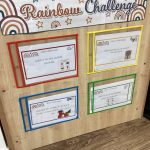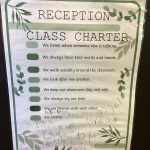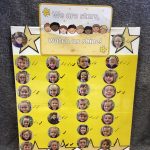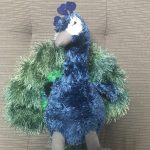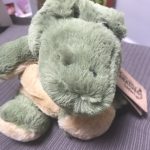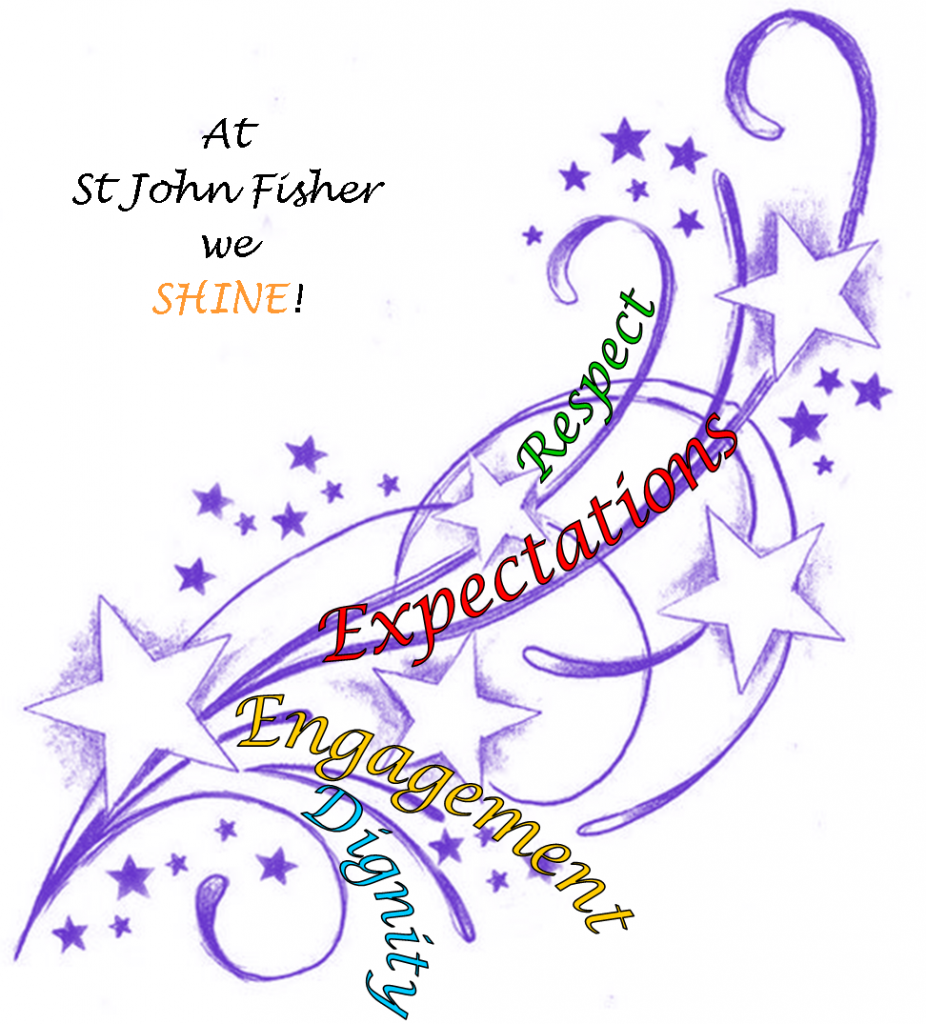Reception Gospel Value:
Forgiveness and Mercy
EYFS Class Right: Rest and Play
Every child has the right to rest, relax and play.
Welcome to Reception at St John Fisher
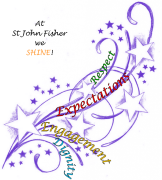
Miss Mould

Miss Smith
Welcome to our classroom
Welcome to our classroom. In reception we learn through play so have lots of different areas in our classroom to challenge and extend our learning.
Important Information:
Reading Books- Go out on a Wednesday to be returned on a Monday. Please do not return earlier as these need to be kept at home to share with your child each evening.
PE- PE will take place every Wednesday morning
Homework- Homework will be sent home or uploaded on to Seesaw each Wednesday. Homework should be returned to school the following Monday
Science and Music- Every Wednesday morning Mr Bates will work with Reception exploring science in lots of fun ways and delivering our Charanga Music programme with the children
Forest school – We will visit forest school every Friday morning. Please ensure your child is dressed appropriately.
Curriculum Information
Class charter and displays
At St John Fisher we shine
How do we shine in Reception?
- We are engaged in our learning through: play, exploring outdoors as well as indoor provision, using our focus texts and themes as well as following children’s interests.
- We are supported, encouraged and challenged through high expectations in our behaviour and learning in carpet sessions and during play in continuous provision. This includes questioning and sustained shared thinking with staff.
- We show our respect for each other and for our school by sharing toys, taking turns, asking politely, looking after our toys and taking care of our environment.
- We use our learning powers and our Come and See experiences to help us grow in dignity. We are also encouraged to be more independent through self-registration and lunch choices, investigative play, snack time and changing clothing and footwear.
Each half term we will introduce a new learning power to our class. We talk about how we can show that particular learning power, and how it helps us improve our work. For each Learning Power we have a Learning Power buddy. Each week a child is chosen who has been the Learning Power star. We celebrate this in class and with our families at home. Our Learning Powers for the Spring term are:
5 Planning
6 Absorption
At St John Fisher Primary School we aim for all our pupils to become fluent, confident readers who are passionate about reading.
Children who read or are read to regularly have the opportunity to open the doors to so many different worlds! More importantly, reading will give your child the tools to become independent life-long learners.
We can achieve this together through:
- Read Write Inc, a program to help to your child read at school
- Encouraging children to develop a love of books by reading to them daily, at home and at school
- Giving children access to a wide range of books at school and at home
At Eileen Wade we use Read Write Inc Phonics (RWI) to give your child the best possible start with their literacy. We have put together a guide to how the RWI programme works together with some useful links.
Mrs Auld is our Read Write Inc lead teacher, so if you have questions about RWI, contact school who can refer you to her. Please take the time to read the information as it will provide invaluable information as to how you can help and support your child in reading.
What is Read Write Inc?
Read Write Inc (RWI) is a phonics complete literacy programme which helps all children learn to read fluently and at speed so they can focus on developing their skills in comprehension, vocabulary and spelling. The programme is designed for children aged 4-7. However, will continue teaching RWI to children beyond the age of 7 if they still need support in their reading.
RWI was developed by Ruth Miskin and more information on this can be found at https://ruthmiskin.com/en/find-out-more/parents/.
How will RWI be taught?
All children are assessed regularly by their teacher so they work with children at the same level. This allows complete participation in lessons.
Reception
In Reception all children will learn how to ‘read’ the sounds in words and how those sounds can be written down.
Reading
The children:
- learn 44 sounds and the corresponding letters/letter groups using simple picture prompts – see below
- learn to read words using Fred talk and sound blending
- read from a range of storybooks and non-fictions books matched to their phonic knowledge
- work well with partners
- develop comprehension skills in stories by answering ‘Find It’ and ‘Prove It’ discussion questions
Writing
The children:
- learn to write and form the letters/letter groups which represent the 44 sounds with the help of fun phrases
- learn to write words by using Fred Talk
- learn to build sentences by practising sentences out loud before they write
Talking
The children:
They work in pairs so that they:
- answer every question
- practise every activity with their partner
- take turns in talking and reading to each other
- develop ambitious vocabulary.
Power Maths:
This year we will be using the Power Maths scheme of work in line with the rest of our schools mathematics curriculum. Power Maths is a structured sequence of learning outcomes which helps children to achieve their full potential and offers strengthening and deeping tasks throughout. We will offer this alongside NCTEM National Centre for Excellence in the Teaching of Mathematics, and collaborations with North West Maths Hub 3.
In our Autumn 1 term we will be learning about:
- Counting to 5
- Number bonds to 5
- 2D and 3D shapes.
Home Learning:
Children will be sent home a new reading book every Wednesday to be returned on a Monday matched to their current phonics level of development. We ask that parents read with their child as often as possible at least 4 nights a week for between 5-10 minutes and complete their phonics homework alongside this. Little and often is best to make maximum progress. Children also have a writing book which they can use alongside their reading to write a simple sentence from their book. They will also be given different sentence stems to write based on our learning in class.
As a whole school we are developing our teaching of Oracy. Definition … In Reception we have adopted Voice 21’s ‘Talking Tuesday’ idea. Communication and Language is important to us every day in Early Years, but we have even more planned, focused opportunities on Tuesdays for talk. We start the day of with time for a chatter, at snack time we have our Café chat – just like many parents like to do: join with their friends and catch up at Starbucks or Costa Coffee. We also use Picture News to focus our talk on an issue that is happening right now in the news. As well as developing our children as global citizens, Picture News also includes British Values which we explore through our themed talks with the children. Talking Tuesday doesn’t stop at home time, as we encourage our families to also continue at home. This can be through any of the 4 key oracy strands: Words, Body, Feelings and Brain. For example, they could be ‘Word Watchers’ and collect words that mean the same as our Picture News story for the Words strand, or they may be asked to play a listening game to help develop the Body strand.
In Reception we use our SeeSaw blog to share children’s learning and experiences at school. This can be found on the main school webpage under ‘Reception’. We have also introduced Parent App to share any documents or information regarding trips or materials that may be required for school. This is still a new App to school so is still being developed but should be in fully working order shortly. If you do not have access to ParentApp please see a member of the office who can assist you with this.
A member of staff is on the door after school should parents/carers wish to ask any questions and on select days of a morning time when not supporting children in class. Any immediate enquiries should be contacted through the school office. Staff are available for arranged meetings after school should you need to discuss a matter more privately.


